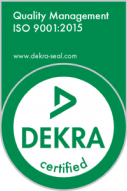In the dynamic landscape of information technology (IT), organizations are constantly seeking ways to bolster their technical capabilities. One of these strategies includes staff augmentation – a model that allows companies to ‘borrow’ IT professionals from service providers or independent contractors. This approach helps fill immediate skill gaps and address short-term project needs.
Understanding Staff Augmentation: Short-Term Benefits and Long-Term Drawbacks
To clarify, staff augmentation is akin to an on-demand service. If you need extra hands for a specific project or to replace a key member temporarily, you can hire external resources. These professionals are paid by the hour and can be let go with a reasonable notice period. This method provides a simple cost model and quick scalability, all with minimal disruption to your existing IT team’s structure.
Take the case of ‘TechyCo,’ a fictional tech company. They once needed a team of data scientists for a six-month project. Rather than hiring full-time employees for a short-term requirement, they used staff augmentation, which proved cost-effective and efficient.
However, problems may arise if staff augmentation transforms into a long-term strategy. This model could lead to what we call ‘staff creep’ – a gradual increase in augmented staff over time. It could also create an ‘unrecognized head count’ that falls under the organization’s radar. To put it simply, you might end up with more augmented staff than you initially planned, which can inflate costs.
Also, contractors added as high-cost permanent staff may lead to challenges such as loss of knowledge control and business continuity. Without any obligation to deliver specific outcomes or transfer knowledge, significant organizational risk may build up over time.
Managed Services: A Strategy for Long-Term Growth
An alternative approach to long-term external sourcing is the managed services model, which can be compared to outsourcing. Here, you’re not hiring individuals, but contracting a company to deliver a specified outcome for a predetermined price.
The managed services model promotes value-based planning. It’s not just about hiring a skillset; it’s about ensuring an outcome, thus shifting the delivery risk to the provider. This model is usually more cost-effective overall and helps maintain operational continuity.
To illustrate, ‘TechyCo’ started a new project with a two-year timeline. Rather than using staff augmentation, they transitioned to a managed services model, engaging a service provider to deliver the entire project. This shift allowed them to focus on their core competencies while the managed service provider took care of the project’s technical aspects.
Overcoming Boundaries to Adapt Managed Services:
Even with its benefits, some organizations hesitate to adopt the managed services model due to concerns about losing operational control. However, it’s important to remember that outsourcing doesn’t equate to relinquishing control. You can maintain control through well-defined contracts and strong relationship management.
Despite the initial complexity, shifting from staff augmentation to managed services can result in significant economic and service value. It’s about focusing on outcomes instead of individual skill sets. This shift ensures cost predictability and puts the delivery risk on the service provider.
Unlocking Additional Benefits of Managed Services:
The managed services model offers additional advantages. It provides a clear link between service, business needs, and cost, shifting the focus from resource utilization to optimizing the cost/service balance. It also offers scalability based on business demand and operational performance metrics tied to process excellence and outcomes.
Whether you choose staff augmentation or managed services depends on your specific needs, resources, and long-term goals. As a rule of thumb, staff augmentation works well for short-term, specific projects, while managed services offer a better approach for long-term and outcome-oriented projects. Understanding these models can help you make informed decisions strategically.
David McLaughlin
CEO
About Columbia Advisory Group
Founded in Dallas in 2012, Columbia Advisory Group LLC (CAG) is an established IT consulting firm renowned for delivering cost-effective, meaningful, and practical IT solutions that solve complex business problems. Our seasoned teams offer comprehensive insight across diverse regulatory and economic environments, providing unbiased, straightforward analysis and recommendations. We pride ourselves on our deep understanding of IT while remaining software and hardware-agnostic. Regardless of your organization’s growth trajectory or economic landscape, we at CAG are adept at adapting to your unique needs and complexity, offering tailored solutions to drive your success.
Contact us at info@columbiaadvisory.com.




